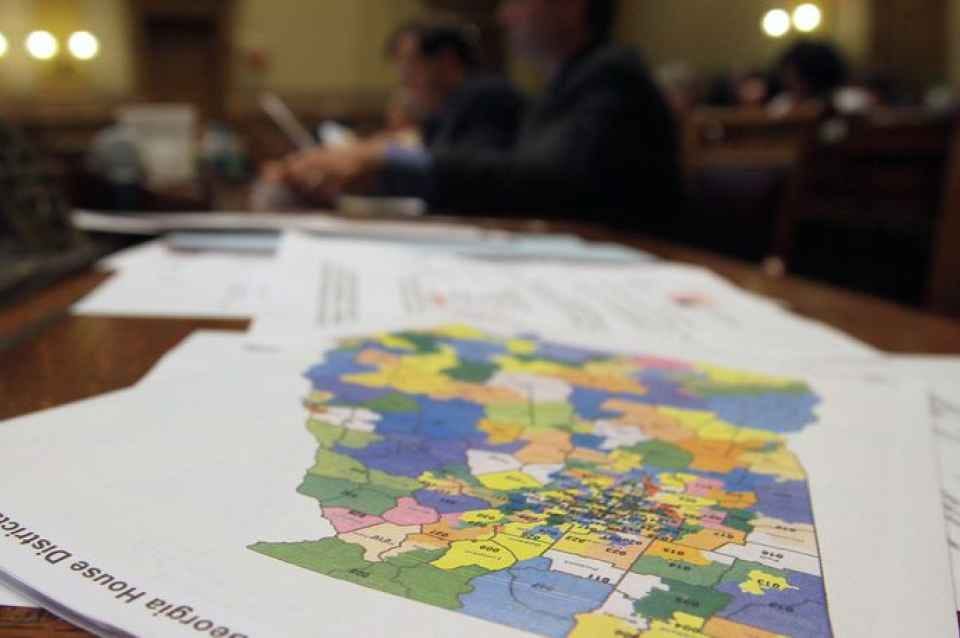BREAKING: Judge strikes down Georgia's congressional, legislative maps
Judge orders redrawn maps by Dec. 8
A federal judge Thursday ordered the redrawing of the state’s 14 congressional districts to include an additional majority-Black district in a move that could result in Democrats gaining a seat in Congress.
Additionally, U.S. District Judge Steven Jones is ordering state lawmakers to draw two additional majority-Black state senate districts and five additional majority-Black state house districts.
It’s the latest domino to fall in a battle playing out in courtrooms across the country to redraw district lines ahead of the 2024 election.
Redistricting is a process that state lawmakers must undertake at the start of every decade so that voting maps are reflective of population shifts. But the seemingly routine process is often rife with partisanship: the majority party oftentimes uses redistricting to cement and expand its political footprint, a centuries-old tactic known as “gerrymandering.”
Civil rights groups argued that Georgia’s population increase has been fueled by people of color, an increase that they say was not reflected in the 2021 redistricting session.
Plaintiffs particularly focused on northern metro Atlanta: Prior to redistricting, Democrats had managed to narrow Republicans to an 8-6 advantage in the 14-member congressional contingent, owing to shifting racial and political dynamics in Atlanta’s northern suburbs.
But during redistricting, Republican lawmakers stretched the competitive and diversifying 6th district into more exurban and whiter territory, putting it out of reach for incumbent Rep. Lucy McBath (D) — who is Black.
McBath decided to run for re-election in a more favorable district, clearing the way for Republican Rich McCormick — who is white, to easily win back the 6th district for his party. His victory shifted Georgia’s congressional makeup to nine Republicans and five Democrats in a state that regularly hosts competitive statewide elections.
Republicans also used redistricting to placate their vulnerable state house and senate members. GOP state lawmakers who were starting to face close elections suddenly found themselves running in much more favorable constituencies.
Lawyers for the state defended the maps by arguing that they were drawn with partisan intent. While courts have repeatedly struck down gerrymandering for racial purposes, the act of redrawing districts to create a political advantage over your opponents has never been found to be illegal.
Ultimately Jones sided with the plaintiffs.
“Georgia has made great strides since 1965 towards equality in voting,” Jones said in his 516-page ruling. “However, the evidence before this court shows that Georgia has not reached the point where the political process has equal openness and equal opportunity for everyone.”
Judge Jones is giving state lawmakers until December 8 and threatened to take matters into his own hands if they fail to act. But the state is expected to appeal his ruling, which could drag this battle into the next legislative session — and an election year.
But many lawmakers would be wise to start rethinking their plans for the holidays.
“Thankfully we are staying in GA,” one lawmaker joked in a text when asked about her Thanksgiving travel plans.
Georgia is not the only southern state facing redrawn maps ahead of 2024: this week North Carolina Republicans passed a new map that could help their party gain as many as four seats in Congress. Alabama was ordered to redraw its congressional map to create a new majority-Black district after a shocking ruling from the U.S. Supreme Court. Louisiana, Florida and South Carolina are facing redistricting court challenges as well.
It’s all part of a nationwide battle that could determine which party wins control of Congress in next year’s election.




